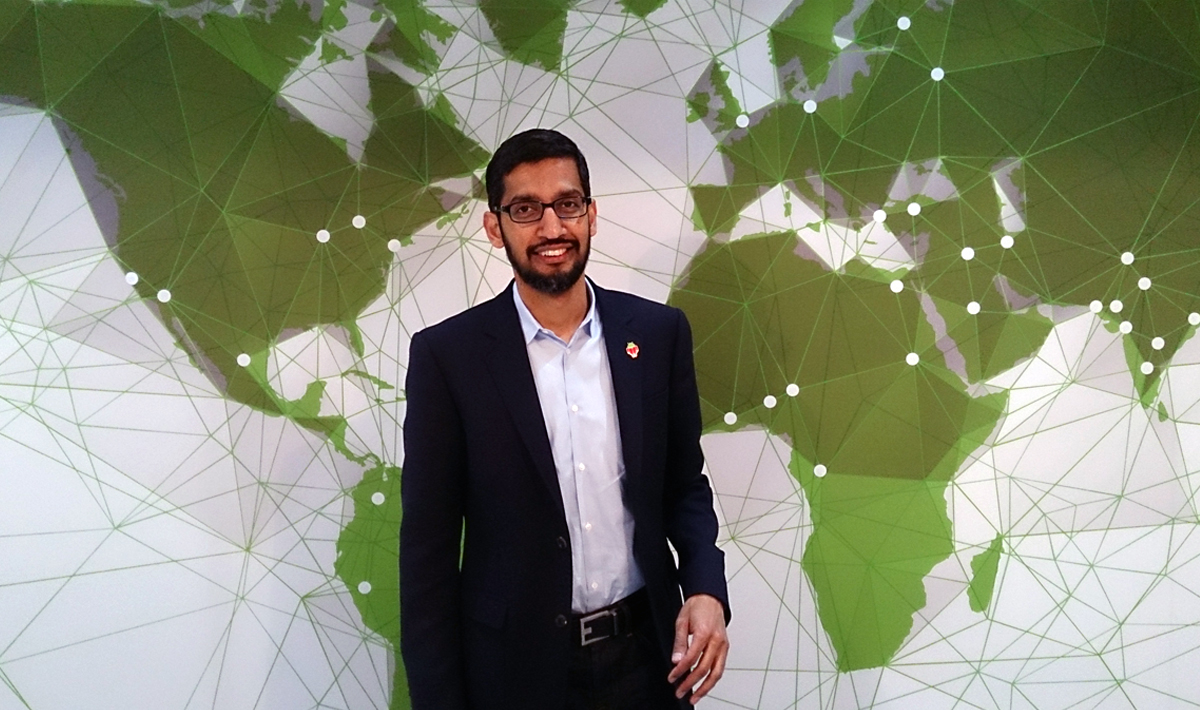Google's Shocking Move: 25% of Its Code is Now AI-Generated!
In a groundbreaking revelation that could change the course of software development, Sundar Pichai, CEO of Google, recently disclosed that more than 25% of the company’s internal source code is now generated by artificial intelligence (AI). This significant milestone demonstrates just how integral AI has become in the development pipeline of major tech firms like Google, and offers a glimpse into what the future holds for the entire industry. With this move, Google is reshaping its approach to coding, and its approach to AI promises to revolutionize not just the way code is written, but the entire development process.
AI's Integration Into Google's Development Process
During a recent earnings call, Sundar Pichai spoke candidly about the growing role of AI at Google, revealing that AI now plays a central role in generating the company's internal source code. According to Pichai, this is part of a broader initiative to use AI tools to enhance coding processes and improve the overall efficiency of the engineering teams. With the integration of AI, Google has been able to significantly reduce the time and effort required to generate source code, which in turn allows engineers to focus on more creative and strategic tasks.
However, Pichai was also quick to clarify that despite AI's increasing involvement, human engineers still play an essential role in the process. AI-generated code is not automatically pushed into production but is subject to thorough human review. Engineers are responsible for approving or adjusting the code before it is implemented into any of Google’s systems. This ensures that the AI-generated code meets the company’s standards for quality, security, and performance.
This model reflects the evolving role of AI within Google’s development teams. Rather than replacing human engineers, AI is serving as a powerful tool that enhances their productivity and helps them work faster. The code produced by AI complements the efforts of human developers, enabling them to solve complex problems more efficiently and focus their efforts on innovation rather than routine tasks.
The Growing Influence of AI-Powered Coding Tools
Google’s impressive milestone of 25% AI-generated code is part of a larger trend in the tech industry. AI-powered coding tools are becoming increasingly popular among developers across the globe, as they offer the promise of automating tedious aspects of the development process while maintaining—or even improving—code quality. As AI tools continue to evolve, they are poised to become indispensable assets for development teams everywhere.
A survey by GitHub, which polled 2,000 software engineers, revealed that 97% of respondents have used AI-powered coding tools at work. Many developers cited AI’s ability to improve the quality of their code and accelerate their adoption of new programming languages. These tools assist with tasks such as bug fixes, code completion, and even generating entire code blocks, which saves valuable time and reduces the likelihood of errors.
Similarly, research by Black Duck Software found that nine out of ten developers are using AI tools in their coding workflows. Notably, those working in high-demand fields such as cybersecurity and technology have been particularly quick to adopt AI-powered tools due to the fast-paced nature of these industries.
For many developers, AI tools are transforming the way they approach coding. With the ability to automate routine tasks, AI enables developers to work faster, reduce the risk of errors, and spend more time on high-level problem-solving. This shift is helping businesses scale faster and improve their development speed, which can be critical in competitive industries.
AI in Software Development: Democratizing Coding for All
One of the most significant benefits of AI-powered tools is their ability to democratize software development. Traditionally, building applications and writing code required a deep level of expertise and specialized knowledge. A company that wanted to build an application or software product often had to rely on a team of skilled developers, creating a bottleneck in the development process.
AI is changing this dynamic by making coding more accessible to individuals with limited programming experience. Manoj Chaudhary, CTO of Jitterbit, explained that AI-powered tools lower the barriers to entry for application development. “In the past, creating applications required dedicated developers, and that created bottlenecks for businesses. Many organizations had long lists of unmet needs because they lacked the human capital to build all the necessary applications,” said Chaudhary. “AI is breaking down these barriers by enabling anyone with a basic understanding of what’s needed to automate tasks and processes.”
This shift has the potential to transform the development landscape. Small businesses and startups that don’t have large development teams can now leverage AI tools to build applications and streamline workflows, significantly enhancing their productivity. Additionally, AI tools can be used to accelerate time-to-market for new products, offering companies a competitive advantage in fast-moving industries.
Related: Microsoft vs. Google: A High-Stakes Clash Over Cloud, Antitrust, and the Future of Tech
The Challenges and Concerns of AI in Coding
While the rise of AI in coding has brought numerous benefits, it’s not without its challenges. As AI-generated code becomes more widespread, developers are starting to voice concerns about the quality and maintainability of AI-generated code. According to a Google internal report, 39% of surveyed developers expressed a lack of confidence in AI-generated code. These concerns stem from the fact that AI systems are still learning and evolving, and they may not always produce the most efficient or secure code.
Another issue that has emerged is “code churn.” Code churn refers to the rate at which code is rewritten or modified after its initial creation. According to research from GitClear, code churn could increase dramatically in the coming years as AI-generated code introduces more changes and adjustments. In some cases, this could lead to higher costs for businesses, as developers will need to spend more time fixing and maintaining AI-generated code.
Security is another pressing concern. As more businesses adopt AI-powered coding tools, there are growing worries about the safety of AI-generated code. A survey by Black Duck Software found that two-thirds of developers are concerned about the security and safety of AI-generated code. Since AI tools can sometimes introduce vulnerabilities or errors, businesses need to be diligent in reviewing AI-generated code to ensure it doesn’t compromise security.
Related: Google CEO Sundar Pichai’s Election Message: A Call for Trust and Neutrality
The Future of AI in Software Development
Despite the challenges, it’s clear that AI is shaping the future of software development. Google’s use of AI to generate 25% of its internal code is just the beginning. As AI tools continue to evolve, more companies will integrate them into their development processes, speeding up development cycles, reducing costs, and enabling more efficient collaboration.
The potential of AI to transform the software development landscape is immense. AI can help bridge the gap between limited resources and high-demand coding tasks, creating new opportunities for businesses of all sizes. However, as the industry embraces AI, it will be essential to address concerns around quality, security, and maintainability to ensure that AI-driven development remains sustainable and effective.
Ultimately, the future of coding will likely be a collaborative effort between human engineers and AI, blending creativity and automation to create more powerful, scalable, and secure software solutions. As Google’s groundbreaking move proves, the future of software development is already here, and it’s powered by AI.









